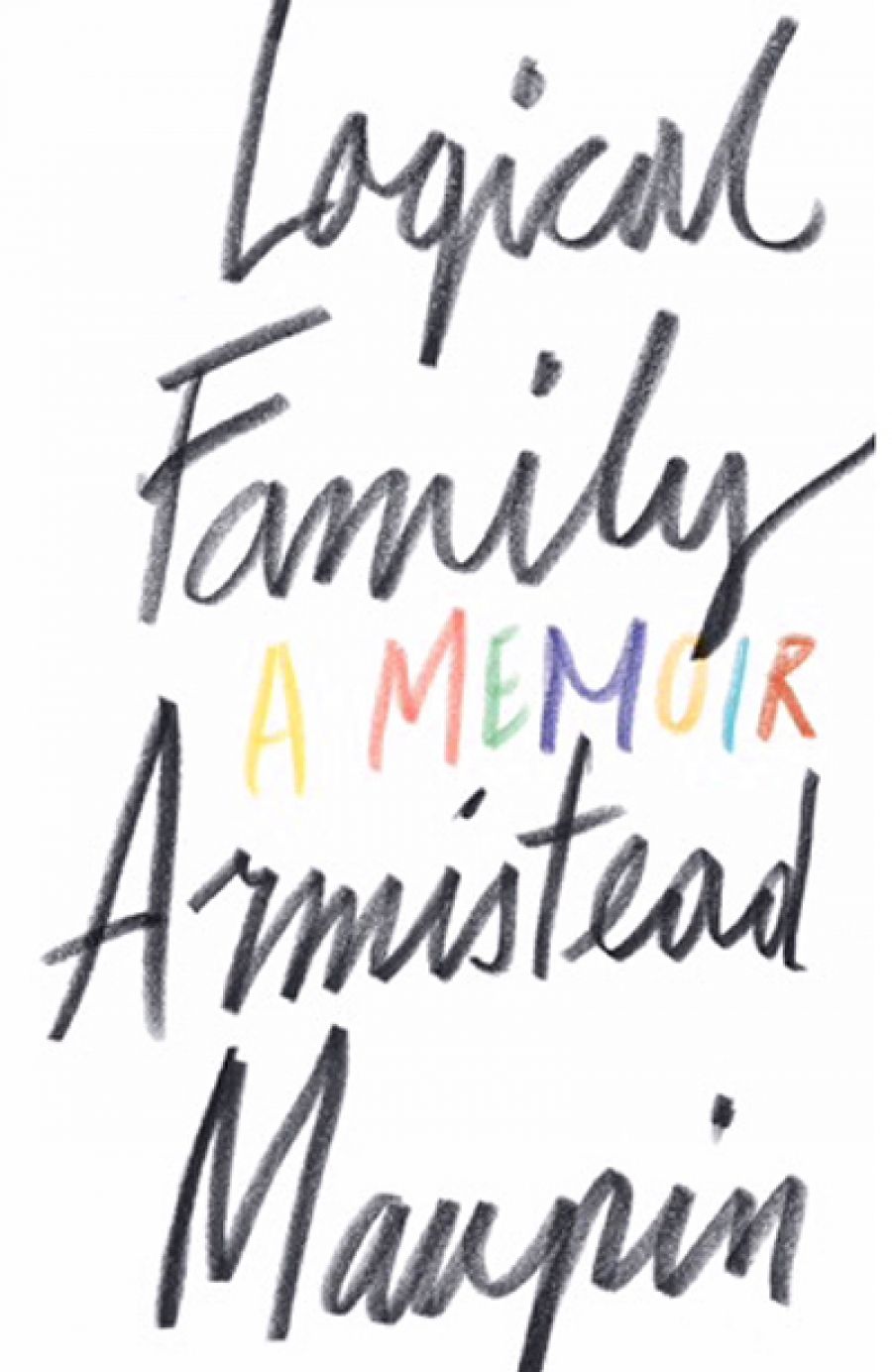
- Free Article: No
- Contents Category: Memoir
- Custom Article Title: Dennis Altman reviews 'Logical Family: A memoir' by Armistead Maupin
- Custom Highlight Text:
When the first volume in the Tales of the City series was published in 1978, Armistead Maupin tells us disarmingly in his new memoir, it flopped. Yet the series, which had begun as a newspaper serial in 1974, continued for a decade, with three more recent books bringing us up to date on the fate of the major characters ...
- Book 1 Title: Logical Family
- Book 1 Subtitle: A memoir
- Book 1 Biblio: Doubleday, $35 pb, 320 pp, 9780857523525
Maupin’s editor at the San Francisco Chronicle, he tells us, insisted on a considerable heterosexual presence in the series. The domestic saga begins with the central character, Mary Ann Singleton, who, we learn, was inspired by watching singles using supermarkets as places for casual pick ups. In a piece of journalistic invention – fake news, we might call it now – Maupin gave life to one of the women he saw in the Marina Safeway, and the rest is history. The historian Julie Abraham, writing in Metropolitan Lovers (2008), summed up the series as: ‘Balzac with shorter sentences, more graphic sex, and fewer and less refined cruelties. Almost everyone is looking for a man. Everyone becomes entangled in everyone else’s stories’.
Tales begins in 1976. Rock Hudson, a friend of Maupin’s, was on hand to read the first paragraphs aloud to a small, carefully selected, audience at the Fairmont Hotel. This reading features on page 194 of the memoir, whence fame and fortune take over. We may not be quite as astounded by his success as the author seems to be, but his is a remarkable story nonetheless.
Logical Family is a ‘coming out’ story told with the verve and skill. If you have read Tales, you will want to read Logical Family to understand the genesis of many of the characters and incidents. But even those unfamiliar with Tales would be captivated by the transformation of Armistead Maupin from conservative army officer to gay icon.
Maupin grew up in a conservative family in North Carolina and came to journalism through a family connection, Senator Jesse Helms, a leader of the southern Republicans, whose politics were both racist and homophobic. Maupin joined the US Navy and served in Vietnam, and the memoir has copious details of his life on the fringes of the war, both in service and then, briefly, as a volunteer veteran.
In 1971 Maupin was summoned to a meeting with President Richard Nixon. He describes in agonising detail the awkwardness of a president who was already under siege from anti-war protestors and preparing for re-election. At this point, Maupin was sexually active but had not yet shaken off the conservative politics of his youth. The meeting with Nixon came just as he was moving to San Francisco, which became home for the rest of his life (Maupin still lives there, with his husband, Christopher Turner). Maupin’s move to California parallels his political shift, though, apart from expressing indignation at right-wing policies on sexuality and AIDS, he has little to say about politics post-Nixon. A memoir is not a manifesto, and Maupin is too skilled a writer to be didactic, but I would have liked a little more reflection on the broader implications of abandoning his deeply held right-wing views after leaving the military.
 Armistead Maupin (left) and his husband Christopher Turner (photograph by Angela George, Wikimedia Commons)
Armistead Maupin (left) and his husband Christopher Turner (photograph by Angela George, Wikimedia Commons)
The title Logical Family suggests that as Maupin’s gay identity became more central, so too the queer world replaced his biological family back in North Carolina. This is a not uncommon trope in queer writings; twenty years ago, Kath Weston wrote an influential book, Families We Choose. Oddly, Maupin does little to develop the theme, saying virtually nothing about his husband, and only briefly sketching key friendships. But he writes at length about his parents, and he does so movingly. Indeed, for someone who, according to the jacket blurb, ‘defined the difference between a “biological family” and a “logical family”’, much of the book reads like a conventional well-written family history. His relations with a stern conservative father and a mother who dies young run throughout the book, which tellingly ends with his father apparently blessing his marriage to Turner.
In the latter encounters with Rock Hudson and Christopher Isherwood, Maupin remains the shy boy from Raleigh, somewhat star-struck by his good fortune. But Isherwood, whose diaries present a less likeable personality than we meet in Logical Family, was an important influence: Tales is in some ways the late-twentieth-century sequel to Isherwood’s Berlin Stories, with the same mix of flamboyance and acute observation.
Read Logical Family for the insights into growing up gay in a loving but deeply conservative family; for the realities of military life in Vietnam during a war that, in retrospect, has few defenders; and for the origins of many of the characters and themes in Tales of the City.


Comments powered by CComment